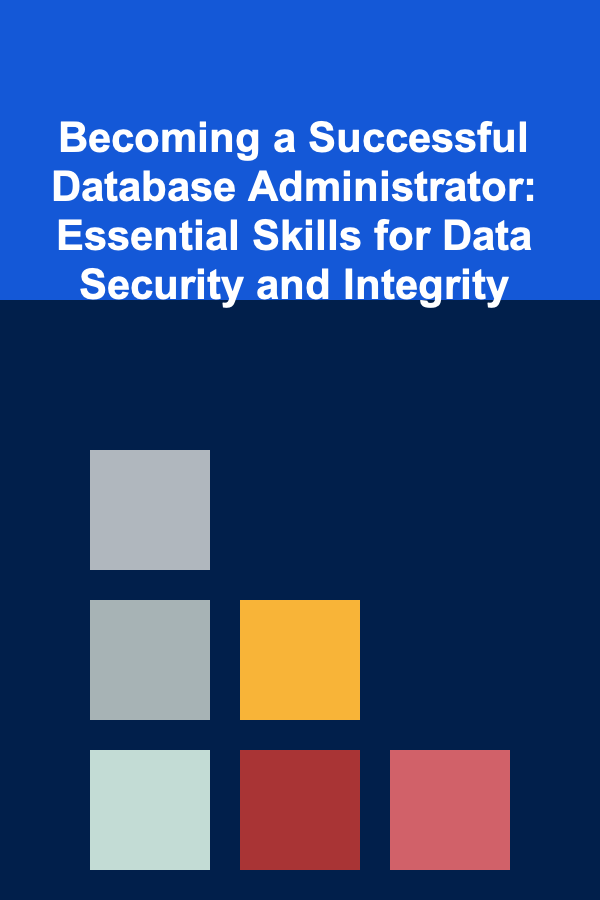
How to Manage Student Loans and Pay Them Off Quickly
ebook include PDF & Audio bundle (Micro Guide)
$12.99$7.99
Limited Time Offer! Order within the next:

Student loans are a significant source of financial burden for many individuals. The debt accumulated for higher education can follow graduates for years, making it challenging to achieve other financial goals such as buying a house, saving for retirement, or starting a family. However, with careful planning, strategic decision-making, and dedication, student loans can be managed efficiently and paid off faster. This article will explore actionable strategies on how to manage student loans and pay them off quickly.
Understanding Your Student Loan Situation
Before diving into the process of paying off student loans, it's essential to understand exactly what you're dealing with. Each loan may have different interest rates, terms, and conditions. Getting a clear picture of your loan structure is the first step in creating an effective repayment plan.
Know Your Loan Types
Student loans come in various forms, including federal loans, private loans, and consolidation loans. Each type has its own repayment terms and conditions.
-
Federal Loans: These are loans provided by the U.S. Department of Education. They typically come with lower interest rates and more flexible repayment options than private loans.
- Direct Subsidized Loans: These loans are available to undergraduate students with financial need. The government pays the interest while you're in school, during deferment, or during the grace period.
- Direct Unsubsidized Loans: Available to both undergraduate and graduate students, these loans accrue interest from the moment they are disbursed.
- PLUS Loans: These are loans for parents or graduate students and often come with higher interest rates than other federal loans.
-
Private Loans: These loans are offered by banks, credit unions, or other private lenders. Private loans typically come with higher interest rates and fewer flexible repayment options compared to federal loans.
-
Consolidation Loans: A consolidation loan combines multiple student loans into a single loan with one interest rate. This can simplify repayments but may not always offer the best interest rate.
Organize Your Loans
Once you understand the types of loans you have, it's essential to gather all relevant details, including the amounts owed, interest rates, and the repayment schedules. Create a spreadsheet or use an online tool to track each loan, making it easier to see where your money is going each month.
Knowing the specifics will help you make informed decisions about which loans to focus on first and how to prioritize repayment.
Create a Strategic Repayment Plan
Paying off student loans as quickly as possible requires a well-thought-out plan. Rushing into loan repayment without a strategy could result in overpaying or getting overwhelmed by high monthly payments. Here's how to structure your repayment approach:
Evaluate Your Current Financial Situation
Before making any decisions about paying off your loans, assess your current financial situation. Consider factors such as:
- Income: How much money do you earn each month after taxes? This will help you determine how much you can afford to allocate toward loan repayment.
- Living Expenses: Your monthly expenses include rent, utilities, transportation, groceries, and other necessities. Understanding these costs will help you determine how much wiggle room you have in your budget.
- Emergency Fund: It's important to have an emergency fund in place before aggressively tackling loan repayment. Aim for at least three to six months' worth of expenses in case of unexpected events like job loss or medical emergencies.
- Other Debt: If you have other high-interest debt, such as credit cards or personal loans, consider addressing those before aggressively paying off your student loans, as high-interest debt can accumulate faster than student loan interest.
Choose a Repayment Plan
Federal student loans offer a variety of repayment plans, which can help you manage payments based on your financial situation. Private loans tend to have fewer flexible options, so your choices will depend on the terms set by the lender.
- Standard Repayment Plan: The most straightforward option, where you make fixed payments over a period of 10 years. While this option may not be flexible, it allows you to pay off loans faster than other plans.
- Income-Driven Repayment Plans: These plans adjust your payments based on your income and family size. If you have a variable income or are experiencing financial hardship, this option can help lower monthly payments. However, it may extend the loan term, resulting in higher overall interest payments.
- Graduated Repayment Plan: This plan starts with lower payments that increase over time. If you expect your income to rise in the future, this could be a good option.
- Extended Repayment Plan: This option allows you to extend the loan term to up to 25 years, which can lower monthly payments but increase the total interest paid.
Once you've assessed your financial situation, choose the repayment plan that aligns with your goals. If you're aiming to pay off loans quickly, the standard repayment plan or a strategy to pay above the minimum may be best.
Pay More Than the Minimum
One of the most effective ways to pay off your student loans faster is to pay more than the minimum amount due. While this may seem like a difficult task, it can have a significant impact on your loan's timeline and interest costs.
Allocate Extra Payments Toward Principal
When making extra payments, ensure that the funds are applied directly to the loan's principal. This reduces the overall balance, which in turn decreases the interest charged on the loan. Many loan servicers automatically apply extra payments to the interest first, so be sure to specify that you want the extra funds to go toward the principal.
Round Up Your Payments
If you're unable to make large extra payments, consider rounding up your payments to the nearest $50 or $100. Even small additional amounts can add up over time and reduce your loan balance quicker.
Make Biweekly Payments
Instead of making monthly payments, try making half of your monthly payment every two weeks. This results in 26 half-payments, or 13 full payments, per year instead of 12. The additional payment will help reduce the principal and the interest charged on your loan.
Refinance or Consolidate Your Loans
Refinancing or consolidating your student loans can be a helpful tool for managing debt and paying off loans faster. However, it comes with potential trade-offs, so it's important to weigh the pros and cons carefully.
Refinancing Your Loans
Refinancing involves taking out a new loan to pay off your existing loans. The goal of refinancing is to secure a lower interest rate, which can save you money over time. If you have a strong credit score, a steady income, and a low debt-to-income ratio, refinancing may be a good option.
- Pros: Lower interest rates, potentially lower monthly payments, and the ability to consolidate multiple loans into one.
- Cons: You may lose access to federal loan protections such as income-driven repayment plans, deferment, or forbearance.
If you decide to refinance, shop around for the best rates and terms. Compare offers from various lenders, and check whether they offer any special incentives for student loan refinancing.
Consolidating Federal Loans
Consolidating federal student loans combines multiple loans into one loan with a fixed interest rate. This can simplify your payments by combining your loans into a single monthly payment. However, consolidation doesn't necessarily lower your interest rate---it's based on the weighted average of the interest rates on your loans.
- Pros: Simplified payments, access to some repayment plans.
- Cons: You may lose borrower benefits, such as access to income-driven repayment plans.
Consolidating Private Loans
Consolidating private loans is a similar process to federal consolidation but typically involves a private lender. This option may help you secure a lower interest rate, but it's essential to compare terms carefully.
Take Advantage of Loan Forgiveness Programs
Federal student loans may be eligible for forgiveness programs that can significantly reduce the amount you need to repay. These programs are typically designed to encourage borrowers to work in specific fields, such as teaching, healthcare, or public service.
Public Service Loan Forgiveness (PSLF)
The Public Service Loan Forgiveness program allows federal loan borrowers to have their remaining loan balance forgiven after making 120 qualifying monthly payments while working in public service jobs. This can be a tremendous benefit for those working in government, non-profits, or certain other public sectors.
- Eligibility: You must work full-time for a qualifying employer, make qualifying payments under an income-driven repayment plan, and work for 10 years (120 payments).
Teacher Loan Forgiveness
Teachers who work in low-income schools may be eligible for loan forgiveness under the Teacher Loan Forgiveness program. If you teach for five consecutive years in a qualifying school, you may be eligible for forgiveness of up to $17,500 of your federal student loans.
Income-Driven Repayment (IDR) Forgiveness
Under income-driven repayment plans, any remaining balance on your federal loans may be forgiven after 20 or 25 years of qualifying payments. However, the forgiven amount may be taxed as income.
Military Service Loan Forgiveness
Members of the military may be eligible for student loan forgiveness or repayment assistance, depending on the branch of service and length of service. These programs vary by branch and may offer significant financial relief.
Lifestyle Changes and Budgeting
In addition to strategic financial decisions, lifestyle changes and budgeting practices can also help you pay off student loans faster.
Create a Budget
A strict budget can help you find extra money to allocate toward your student loan payments. Track your spending and identify areas where you can cut back, such as dining out, subscriptions, or unnecessary shopping.
Reduce Living Expenses
Consider reducing your living expenses by moving to a more affordable housing situation, using public transportation instead of owning a car, or eliminating non-essential expenses. These changes can free up more money to put toward paying down your student loans.
Side Hustles and Additional Income
Take on side jobs or freelance work to generate extra income. Whether it's tutoring, graphic design, or driving for a rideshare service, the additional money can be dedicated to paying down your loans faster.
Stay Focused and Motivated
Paying off student loans quickly can be a long and challenging journey, but maintaining motivation is essential. Set milestones to celebrate progress, such as paying off a certain percentage of your loans or reaching a specific loan balance.
Stay focused on the benefits of being debt-free---whether it's the financial freedom to pursue other goals, saving for retirement, or reducing stress. Track your progress, and remember that every extra payment brings you closer to financial freedom.
Conclusion
Managing and paying off student loans quickly is achievable with the right strategies. By understanding your loans, creating a detailed repayment plan, and making extra payments whenever possible, you can significantly reduce the time it takes to pay off your debt. Refinance or consolidate your loans for better terms, take advantage of forgiveness programs, and make lifestyle changes to free up more money for loan payments. With dedication and a focus on your financial goals, you can manage your student loans and eliminate them in record time.
Reading More From Our Other Websites
- [Personal Care Tips 101] How to Make Your Nails Healthier After Frequent Use of Nail Polish Remover
- [Polymer Clay Modeling Tip 101] Best Tips for Repairing Cracks and Breaks in Finished Polymer Clay Items
- [Organization Tip 101] How to Organize Digital Copies of Important Documents
- [Personal Care Tips 101] How to Use a Hair Mask to Achieve Salon-Quality Hair at Home
- [Home Family Activity 101] How to Beat the Heat with Fun Backyard Water Games for the Whole Family
- [Ziplining Tip 101] Eco-Adventures: How Ziplining is Shaping Sustainable Tourism
- [Organization Tip 101] How to Use Multi-Purpose Bins for Efficient Storage
- [Home Cleaning 101] How to Remove Stubborn Stains from Stainless Steel: A Comprehensive Guide
- [Personal Investment 101] How to Start Personal Investment for Beginners: Avoiding Common Pitfalls and Building a Solid Foundation
- [Personal Care Tips 101] How to Use Antiperspirant to Prevent Excessive Sweating

Becoming a Successful Database Administrator: Essential Skills for Data Security and Integrity
Read More
How to Celebrate Milestones with Charity Donations
Read More
How to Create a Cozy Atmosphere with Thanksgiving Floating Candles
Read More
How to Create a Family Communication Plan with Your Kit
Read More
How to Secure Your Home When Moving into a New Property
Read More
10 Tips for Occupational Therapists New to Hand Therapy
Read MoreOther Products

Becoming a Successful Database Administrator: Essential Skills for Data Security and Integrity
Read More
How to Celebrate Milestones with Charity Donations
Read More
How to Create a Cozy Atmosphere with Thanksgiving Floating Candles
Read More
How to Create a Family Communication Plan with Your Kit
Read More
How to Secure Your Home When Moving into a New Property
Read More